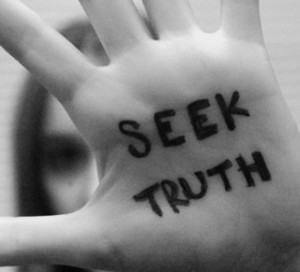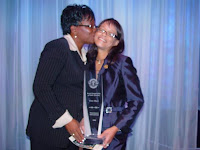The first time I became aware of Jeremy Donovan's new book,
How to Win the Toastmasters World Championship of Public Speaking (non-affiliate link), it was via email, from a fellow veteran of the 'Big Stage', as they asked me 'Have you seen this?' and 'Do you know this guy?' Both valid questions, both of which I answered 'no!'
The second time I became aware of the book wasn't exactly ideal, either. An email came to me through my Toastmasters leadership address, as the author let me know about his book and suggested I forward his request to give out a free copy to our district's International Speech Contestant. Generous, in one sense, but, in my mindset, and the mindset of many other district leaders around the world, it came across as 'SPAM', and a misuse of internal emails, made doubly egregious by the fact that he, in fact, was a Toastmaster himself.
You'd think things couldn't get worse from there. But they did. In my typical, type first, ask questions later manner, I facebooked about this situation, without naming the book or the author, giving the book three strikes. It was meant to be a throwaway comment, but it created a bit of a firestorm, especially when Mr. Donovan actually joined the thread to defend his actions, and his title, which I had criticized as offering a 'bloviated claim'. After all, the author hadn't stepped foot on the 'Big Stage' himself, certainly hadn't won it, and it's truly impossible to tell someone exactly how to win a contest of any sort, be it the the World Championship of Public Speaking (WCPS), the Super Bowl, or the World Series of Poker.
All that is said to put this review in it's proper perspective. Despite it all, I was intrigued, and went ahead and spent the $2.99 for the Kindle version, intent to put everything aside and see if this book had any merit at all.
I wasn't hopeful.
but...I was pleasantly surprised.
 |
Ed Hearn
2006 World Champion |
The book features the text of all nine speakers in the 2012 Championship, something we haven't seen in a book before. Ed Hearn, Douglas Wilson and I put our nine speeches (from District, Region, and the Championship, back when you needed three speeches, instead of two, to win the contest) into our book 'Win, Place & Show', back in 2006, and I was able to get all the finalists to write a chapter each about their own experience in the contest in 2008, in our book 'The Finalists'
(available for free on my website), but Mr. Donovan truly pulls a coup by getting all nine speeches into his book.
With those points scored, he then focuses on nine aspects of giving a 'World Championship' speech, through both analysis of the speeches themselves, and an extended study of winning speeches going back to 1986. The author clearly loves research, data, and statistics, as the book is full of them, from how many laughs per minute to percentage of winners from different positions in the speaking order to what percentage of winners ran off the stage vs. shaking the hand of the contest chair vs. waving as they left. (My personal, if painful, favorite, was LaShunda Rundles 'flying' off the stage in our contest in 2008.)
He breaks down the elements of a winning speech as follows:
Taking the Stage - how do you begin, essentially
Topic Selection - always a subject of debate among students and participants of the contest
Storytelling - including story construction, selection, and pattern
Humor and Emotional Range - laughter, tears, and everything in-between
Language - big vs. small words, sentence structure, title selection
Verbal Delivery - volume, speed, pauses
Non-Verbal Delivery - use of the stage, gestures
Mindset - what do you focus on, how do you approach practicing - the most 'motivational' chapter
Leaving the Stage - pausing, how you plan your 'exit strategy'
He concludes with an interesting chapter about his own thoughts on who he thought would win, and why, and then has to admit he didn't actually pick the right winner. Honesty is good - who wins these contests is often a crapshoot.
Therein lies my only remaining complaint about the book. A 'How-To' book, in my mind, should give me a specific, reliable result if I follow the steps. Building a table, fixing a flat tire, building a marketing list, etc. No one, not even a champion, can give you all the steps, with certainty, that will allow you to win this contest. If nothing else, the contest is a zero-sum game, so if two contestants all do everything perfect and identically to the other, only one of them can actually win.
The contest relies on fallible human judges, who may or may not like your speech based not on the judging criteria, but by their own life experience, or even, subconsciously, if they like your tie or choice of dress vs. pantsuit.
 |
| LaShunda Rundles, 2008 World Champion |
In addition, while he does cover mindset, a key missing component is 'Heart'. Most likely because it is an intangible, immeasurable component in speaking and competing, which one can't distill into a statistic. One cannot watch LaShunda Rundles speech without seeing her whole essence brought to the stage.
Most importantly of all, Lady Luck truly plays a part as well. Just as a football game is occasionally won or lost based on the odd bounce of the pigskin, a speech contest can be won or lost based on a microphone malfunction, the fact that two other people in your bracket spoke on the same subject, or a better speaker got lost getting to the contest that day.
The real promise in this book, the one it fulfills, is telling you how others have won the contest, how some have come close, how some have fallen short. It offers signposts to greater success and warnings against certain failure. It offers 'best practices' and is, at least for this serial contestant (seven time semifinalist, two time finalist), a fascinating read, whetting my appetite for the competition in 2014.
In the end, I enjoyed the book. If you're a Toastmaster, and particularly a contestant, spend the three bucks and give it read. The author has done a tremendous amount of work in compiling his data, interviewing the participants and many past champions. It is the most complete analysis of championship speeches I have seen to date. If you're not a Toastmaster, you might get lost in some of the idiosyncrasies of the contest, but can still glean some great tips about speaking in general.
They say never judge a book by it's cover. I judged it quickly by it's title, and by assuming the worst motives from it's author. That was a mistake on my part. Regardless of what I think of the title, or the email marketing approach, the content of the book, the creation of content from the author, earns it a high rating - 4 out 5 stars.
Pick it up. Jeremy writes...& delivers.
 Last year, I tried a new method to list my goals here in Speak & Deliver. Here's a review of what I expected of myself, and my results.
Last year, I tried a new method to list my goals here in Speak & Deliver. Here's a review of what I expected of myself, and my results.































